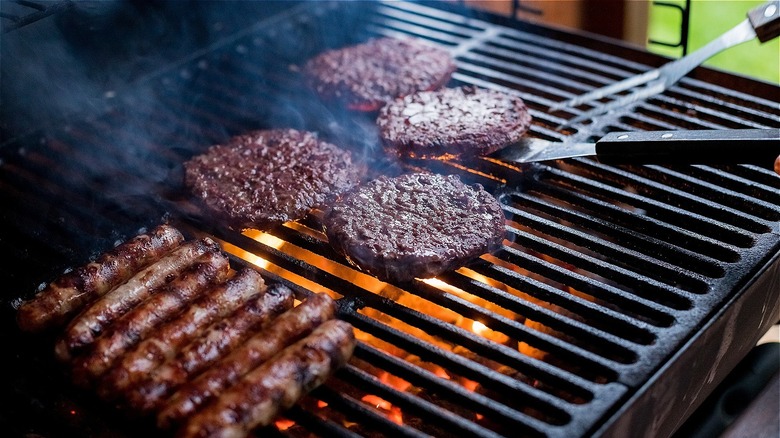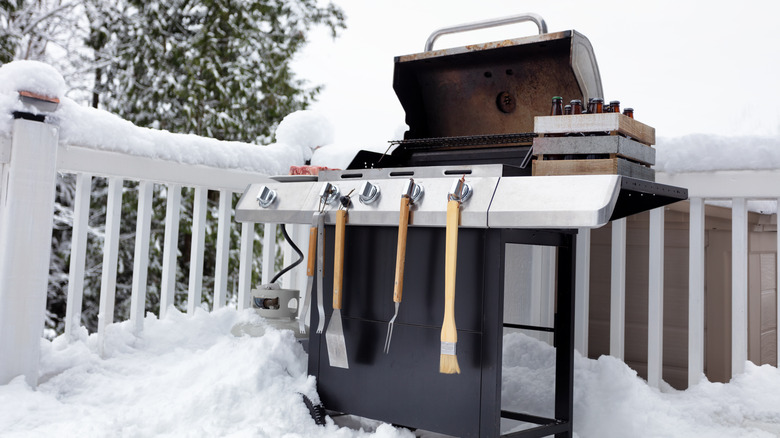Why It's So Important To Winterize Your Grill Every Year
Preparing your grill for winter is an important task that not many people consider. Putting in the time and work now before colder weather and possibly snow arrive will save you headaches in the spring and summer when you pull the grill out from storage. Of course, the extent of winterizing your grill will depend on your climate, meaning if you don't live in an area that has freezing temperatures during winter, you won't need to prepare as much, per BBQ Guys. It's highly recommended to check the manual or guide that came with your grill to see if the manufacturer has specific winterizing methods or instructions, so that you don't accidentally void a warranty if you have one.
In addition to saving you the hassle later, it's also important to winterize your grill every year so that rust doesn't form and so that birds, spiders, and other insects don't make nests inside the grill, according to Family Handyman. The first thing you should do, especially if you have a freestanding grill with drawers or cabinets, is to take any supplies inside that could go bad, such as seasonings, herbs, or other food (via BBQ Guys). Any food supplies left outside could rot and destroy metal drawers and cabinets. Be sure to take a peek at your grill every so often during winter to make sure that mold hasn't formed. Here are some steps you can take to make sure your grill will stay safe in the cold.
Winterize your grill to prevent rust and insects from forming nests
According to Family Handyman, you should first deep-clean your grill, making sure to scrub off any grease and food buildup. Cleaning your grill will not only minimize the chance of corrosion but will also prevent insects, mice, or other critters from forming a home inside and feasting on any food debris that remains on the grill grates, per BBQ Guys. After deep cleaning, you should shut off the gas valve, and if you're storing your grill outside, you can leave it connected. If you're storing your grill inside, be sure to disconnect the propane tank and store it upright outside — never bring a propane tank indoors.
Next, you should put a light coat of cooking oil, such as palm oil, grapeseed oil, or coconut oil, on the grill grates, burners, and other grill parts to prevent moisture from accumulating and forming rust (via BBQ Guys). Then, turn your grill on for around a minute to burn off any excess oil. Once the grill has cooled off, you should use plastic bags or plastic wrap to tightly cover the burners, grates, and gas line. Now, you can clean the outside of the grill, take out the battery if you have a grill with an electric starter, and take out the rotisserie motor if you have one. Lastly, place an appropriately-sized grill cover on it and store it under a covered area or indoors if possible.

